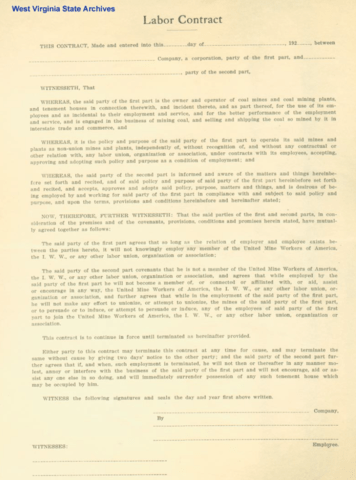Coal operators resisted miners’ efforts to organize unions in the coal mines to improve pay and working conditions. Labor contracts, such as the one attached here, explicitly barred workers from joining the United Mine Workers of America (UMWA) or the International Workers of the World (IWW). These so-called “yellow dog contracts,” in which an employee agrees as a condition of employment not to join a union, were banned in private sector employment in the 1932 Norris-Laguardia Act.
Why would a worker sign one of these contracts? If a mine’s workers wanted to organize a union, how would they go about mobilizing workers who had signed these agreements?
How did the company’s ownership of the “tenement house” that many miners lived in provide the company with greater leverage over its workers?
Citation:
Blank Coal Labor Contract, 1920s, Logan Coal Operators Association Collection, West Virginia Archives and History. https://archive.wvculture.org/history/labor/yellowdogcontract.html
